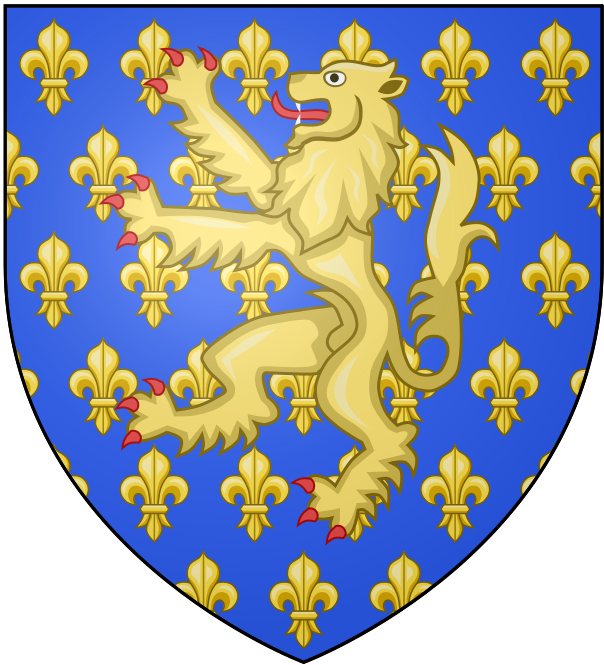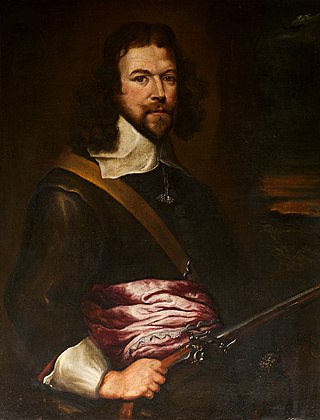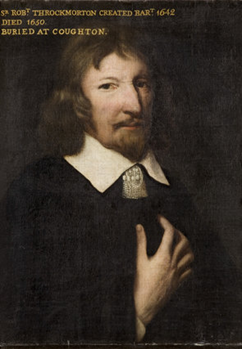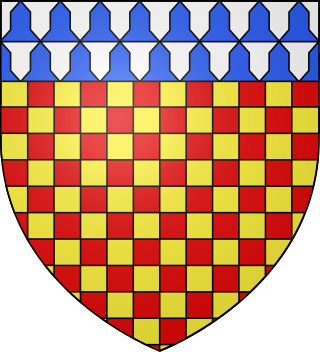
Francis Beaumont (died 1598) of Grace-Dieu in the parish of Belton in Leicestershire, was a judge.

Francis Beaumont (died 1598) of Grace-Dieu in the parish of Belton in Leicestershire, was a judge.
He was the eldest son of the judge John Beaumont, sometime Master of the Rolls, by his second wife Elizabeth Hastings, daughter of William Hastings, 1st Baron Hastings. His father was removed from the bench in 1552 for "scandalously abusing his position".
Nothing is recorded of his early education. He was a Fellow-Commoner of Peterhouse, Cambridge, when Queen Elizabeth I visited Cambridge University. No record survives of his matriculation nor of his having graduated. He studied law in the Inner Temple, was called to the bar, and practised with success and high reputation. In 1572 he was elected a Member of Parliament for Aldeburgh. In 1581 he was elected Autumn Reader of the Inner Temple. In 1589 he was called to the degree of Serjeant-at-Law [2] and on 25 January 1592-3 was appointed a Judge of the Court of Common Pleas .
He married Anne Pierrepont, daughter of Sir George Pierrepont, knight, of Holme Pierrepont in Nottinghamshire, and widow of Thomas Thorold of Marston, Lincolnshire. By his wife, who predeceased him, he had three sons and one daughter as follows:
In 1598 Beaumont caught gaol fever (now believed to have been typhus) whilst presiding at the Assizes of the Northern Circuit, which was one of many so-called Black Assizes where disease spread from prisoners to attendees at court and caused widespread deaths within a few days. Beaumont died at home at Grace-Dieu on 22 April 1598, and was buried on 12 June following, with heraldic attendance, in the parish church of Belton.
William Burton, the historian of Leicestershire, who was 23 when Beaumont died, called him a "grave, learned, and reverend judge". [DNB 1] [DNB 2] [DNB 3] [DNB 4] [DNB 5] [DNB 6] [DNB 7] [DNB 8] [DNB 9] [DNB 10] [DNB 11] [DNB 12] [DNB 13] [3]

Earl of Huntingdon is a title which has been created several times in the Peerage of England. The medieval title was associated with the ruling house of Scotland.

Sir John Beaumont, 1st Baronet of Grace Dieu in the parish of Belton in Leicestershire, England, was a poet best known for his work Bosworth Field.
George Hastings, 4th Earl of Huntingdon was an English nobleman.

Francis Beaumont was a dramatist in the English Renaissance theatre, most famous for his collaborations with John Fletcher.

John Beaumont, 4th Baron Beaumont KG (1361–1396) was an English military commander and Admiral who served in the Hundred Years' War against the partisans of Antipope Clement VII.
Sir Robert Bell SL of Beaupré Hall, Norfolk, was a Speaker of the House of Commons (1572–1576), who served during the reign of Queen Elizabeth I.

Francis Hastings, 2nd Earl of Huntingdon, KG was the eldest son of George Hastings, 1st Earl of Huntingdon and Anne Stafford, Countess of Huntingdon, the ex-mistress of Henry VIII.

Henry Hastings, 5th Earl of Huntingdon, was a prominent English nobleman and literary patron in England during the first half of the seventeenth century.

Sir Edward Dering, 1st Baronet (1598–1644) of Surrenden Dering, Pluckley, Kent, was an English antiquary and politician.
Sir Thomas Foote, 1st Baronet was a wealthy Citizen and grocer of London. He was Lord Mayor of the City of London in 1649. During the Protectorate he was knighted by the Lord Protector Oliver Cromwell in 1657, and after the Restoration (England) he was made a baronet by Charles II.

There have been four baronetcies created for members of the ancient House of Beaumont, all in the Baronetage of England. All four creations are extinct or dormant.
Grace Dieu Manor is a 19th-century country house near Thringstone in Leicestershire, England, occupied by Grace Dieu Manor School until 2020. It is a Grade II listed building.

Sir Robert Throckmorton, KG, of Coughton Court in Warwickshire, was a Member of Parliament and a distinguished English courtier. His public career was impeded by remaining a Roman Catholic.

Sir Francis Hastings (c. 1546–1610) was an English Puritan politician.
Sir James Altham, of Oxhey, Hertfordshire, was an English judge, briefly a member of the Parliament of England, and a Baron of the Exchequer. A friend of Lord Chancellor Francis Bacon, Altham opposed Edward Coke but advanced the laws of equity behind the fastness of the Exchequer courts, so long considered almost inferior. Through advanced Jacobean royalism he helped to prosecute the King's enemies and centralise royal power of taxation. With Sir Edward Bromley, he presided at the Lancashire witch trials in 1612.

Edward Drew (c.1542–1598) of Killerton, Broadclyst and The Grange, Broadhembury, Devon, was a Serjeant-at-Law to Queen Elizabeth I. He served as a Member of Parliament for Lyme Regis in 1584, twice for Exeter in 1586 and 1588 and in 1592 for the City of London. He occupied the honourable position of Recorder of the City of London.

Sir William Strode (1562–1637) of Newnham in the parish of Plympton St Mary, Devon, England, was a member of the Devon landed gentry, a military engineer and seven times a Member of Parliament elected for Devon in 1597 and 1624, for Plympton Erle in 1601, 1604, 1621 and 1625, and for Plymouth in 1614. He was High Sheriff of Devon from 1593 to 1594 and was knighted in 1598. In 1599 he was appointed Deputy Lieutenant of Devon. There is a monument to him in the parish church of Plympton St Mary.

Sir Robert Throckmorton, 1st Baronet (1599–1650) was created a baronet, of Coughton, co. Warwick, on 1 September 1642.

John Beaumont of Grace Dieu in the parish of Belton in Leicestershire, England, was a judge and Master of the Rolls.

Sir John Chichester lord of the manor of Raleigh in the parish of Pilton, near Barnstaple, North Devon, was Sheriff of Devon in 1576/7 and/or in 1585 and died of gaol fever contracted whilst acting as a magistrate at the Lent Black Assizes of Exeter in 1586.
These references are found in the DNB article referred to above.